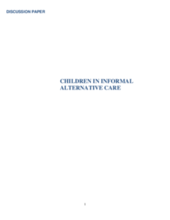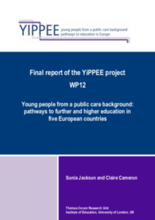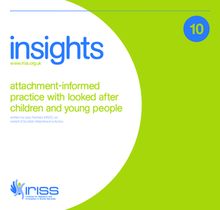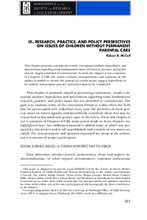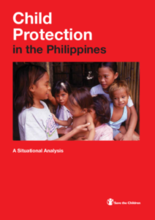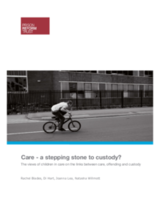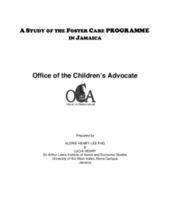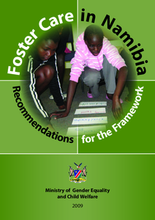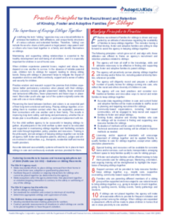Displaying 2031 - 2040 of 2223
This paper, 'Children in Informal Care', was produced in response to a knowledge gap on informal care and to help determine the relevance and applicability of the 2009 Guidelines for the Alternative Care of Children to informal alternative care. The authors asked the questions “what constitutes ‘informal care’?”, “what forms of informal care are there?”, “who needs informal care?”, and “can they be clearly defined?”
The first comparative study of young people who have been in state care as children and their post-compulsory education, was undertaken by a team of cross-national researchers.
This document stresses the importance of healthy attachments for children, especially looked after children. It provides an overview of attachment theory, presents the policy context of looked after children in Scotland, outlines the evidence on effective interventions for children in care and their families, and highlights findings and practice implications.
This chapter presents conclusions, trends, conceptual analyses, hypotheses, and speculations regarding some fundamental issues of research, practice, and policy that are largely unsettled or controversial, regarding children without permanent parental care.
This situational analysis was commissioned by the Child Protection Initiative as a preliminary exercise to develop evidence-based recommendations to guide Save the Children in the Philippines to develop interventions. Priority areas are children in residential care, children in armed conflict and disasters, children in situations of migration (including for trafficking purposes), and children in exploitative and hazardous work conditions.
The main aim of this research is to enhance the understanding of why children in care in the UK are disproportionately likely to end up in the youth justice system or in custody.
This manual offers a training session targeted at policy makers, professionals and paraprofessionals who are already working on programs to support children without appropriate care, or who may begin work in this area. This workshop focuses on children in developing contexts, who require support within their families and those who need an alternative care placement.
Findings of a study aimed to determine the effectiveness and the efficiency of the Foster Care Programme, assess the treatment of children in Foster Care, assess the adherence to child rights in the provision of Foster Care, provide policy direction for the enhancement of the Programme.
Report assessing the existing framework for foster care in light of the realities of Namibian foster care in practice. Based on information about foster care frameworks and guardianship legislation in other countries, recommendations are provided for new approaches to foster care and foster care grants which could be incorporated into Namibia’s forthcoming Child Care and Protection Act (CCPA).
This resource offers principles to frame an agency's foster care recruitment and retention practices related to siblings.

